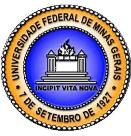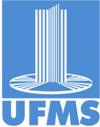
3rd Marathon of Parallel Programming
Current Edition
Click here for the current edition of the Marathon of Parallel Programming
Rules
The team
The Marathon will be open to teams of up to three participants, who must be undergraduate or graduate students. All of them must be registered to the SBAC-PAD conference. A substitute member can be indicated, and one substitution will be allowed during the marathon. Up to 8 teams will be enrolled into the Marathon. Each team will have at his disposal a PC for the whole duration of the Marathon, and access to a dedicated parallel machine to test and measure their programs. Reference books will be allowed during the event, and it is up to the teams to bring their bibliography to the local of the Marathon.
The problems
A set of problems will be specified by an independent committee. Each one will consist of an informal explanation of the problem to be solved, the specific profile of the function to parallelize (parameters and return type), optional data-structures and a sequential implementation.
In order to be taken into account into the final score, the parallel versions should be correct, which means that they should deliver a solution equal to the sequential one.
The tools
The classical HPC libraries and tools (OpenMP, MPI, Posix Threads), as well as sequential tools for profiling, compiling and debugging, will be provided on the target machine. An important point is that the acceleration is the metrics, so that any technique that can accelerate the code will be authorized.
The score
The acceleration of each problem will be measured as follows: the run time obtained with all the processors allocated to a team will be divided by the sequential runtime obtained with the sequential implementation provided by the organization. Thus, any sequential optimization prior to the parallelization will be bonus. The accelerations of all problems parallelized by a team will be added, so that the more (efficient) parallel programs it gets, the better the score.
In order to be taken into account, a parallel solution will have to be correct, that is to say it will have to deliver the same results as the sequential program.
In case of tie, the scalability of the solutions will be measured to choose the best team, as follows: the organizers will run the parallel solutions on the whole target machine and measure the new accelerations, adding them up as in the former case. The winner will be the team that obtains the best acceleration on the full machine.
The awards
The awards that will be offered by SGI company, together with INTEL and Kingston are:
- 1st team:
3 CPU Intel Core 2 Quad Q6600 and
3 boards Intel DG33TL.
- 2nd team:
3 CPUs Intel Core 2 Duo E6320 and
3 boards Intel DG33TL.
- 3rd team:
3 DataTraveler Secure from Kingston DTS/4GB,
unit flash USB of 4 GB (2.0, high-speed).
| Organized by | |
 |
 |


